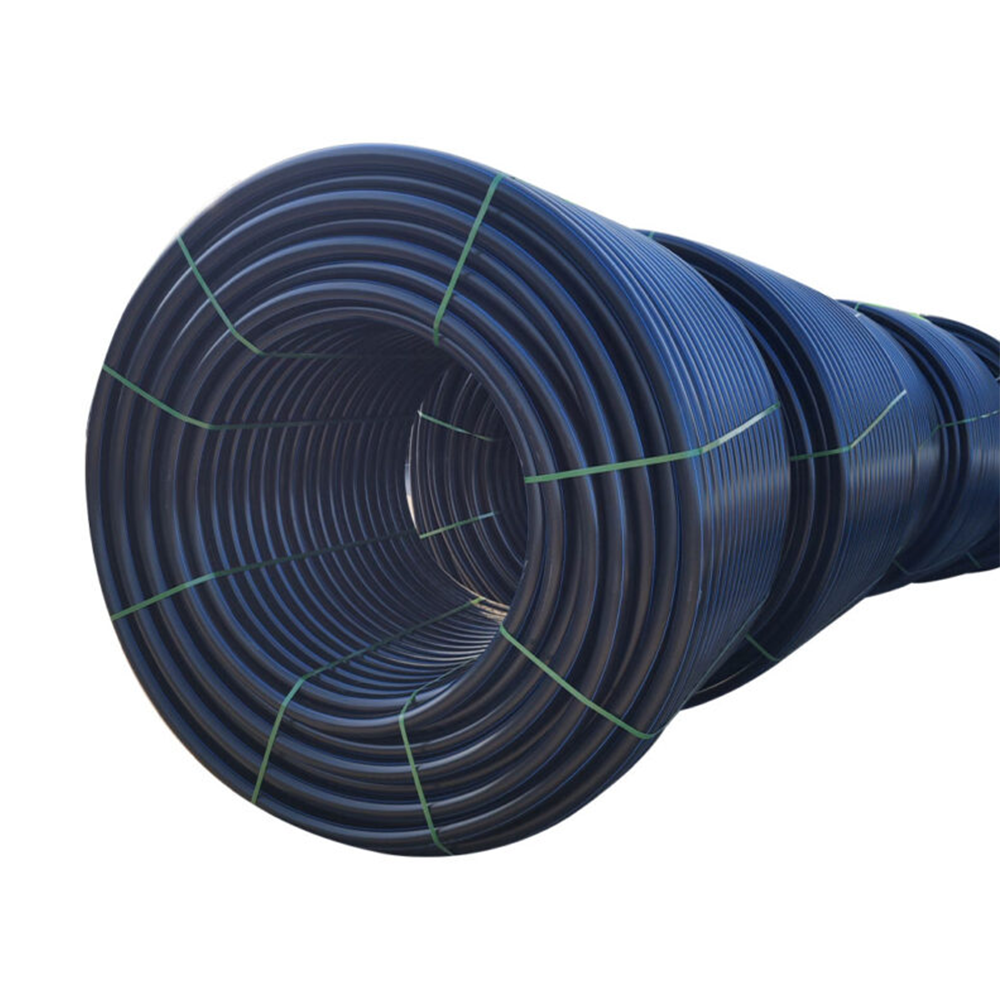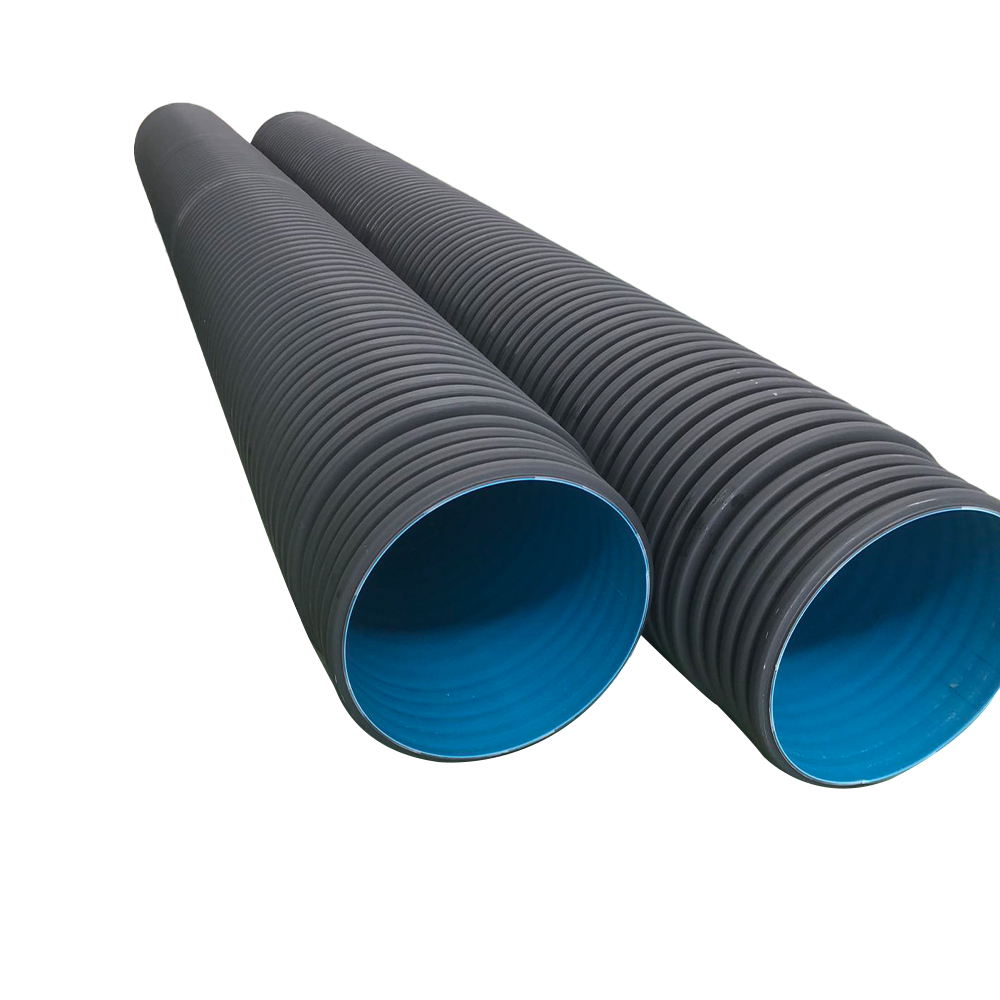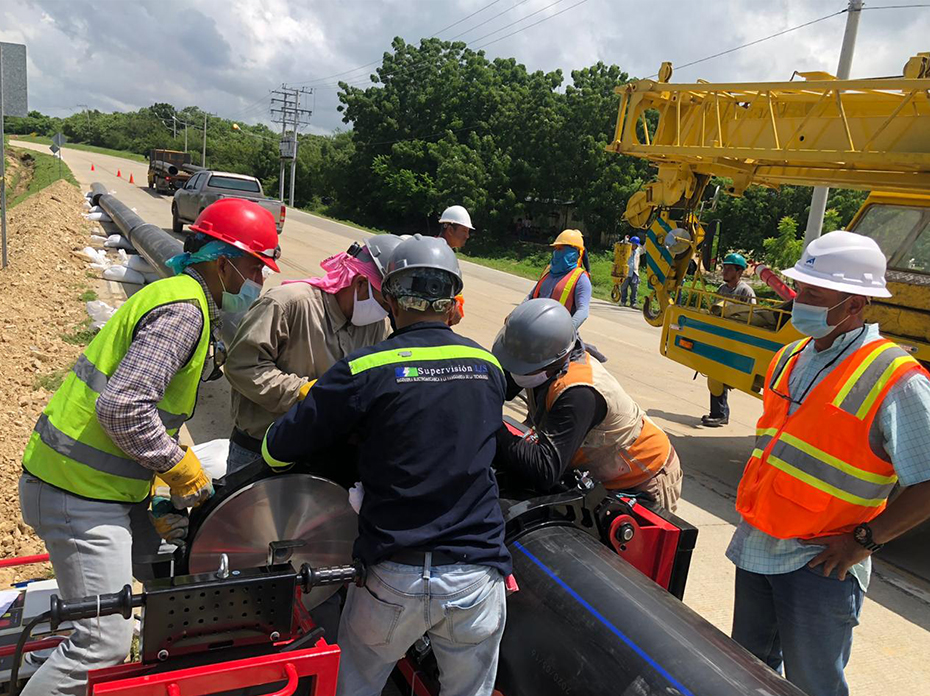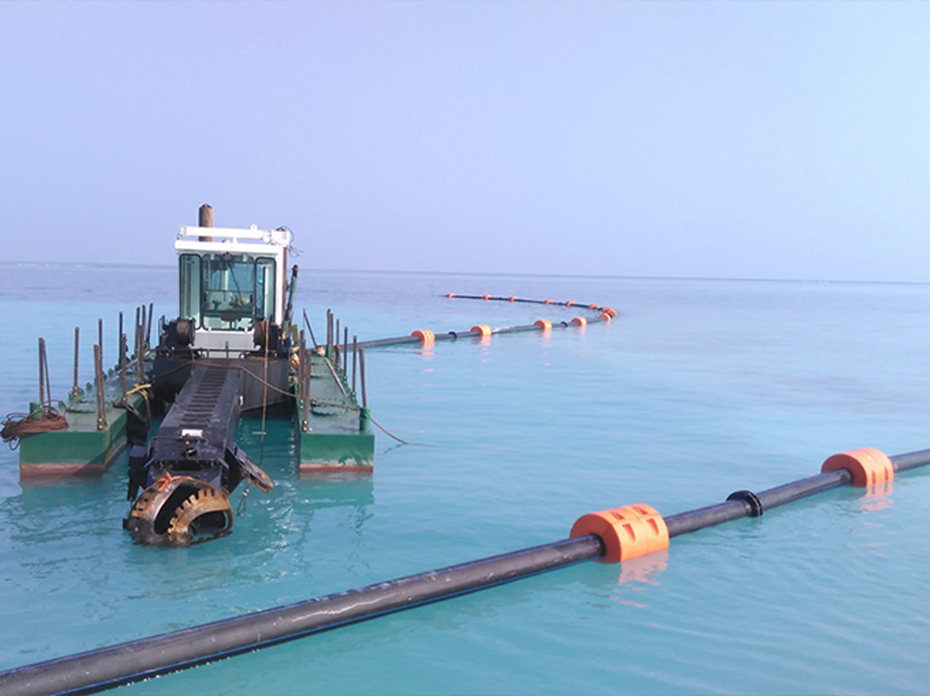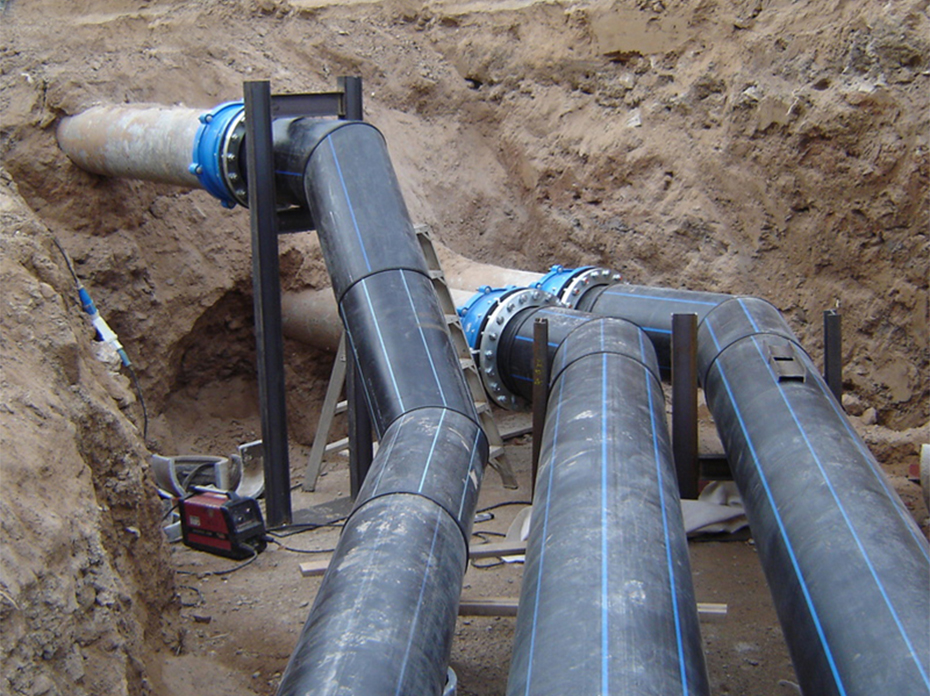When you think of pipelines, the first materials that may come to mind are more traditional ones like copper, ductile iron, concrete, or clay. However, the future of pipelines will be driven by HDPE for good reasons.
High-density polyethylene (HDPE) is a thermoplastic plastic known for its excellent tensile strength, corrosion resistance, and impact resistance. These characteristics make it an ideal material choice for various applications, including both pressure and non-pressure pipelines, conduits, and drainage systems. HDPE pipes are used in drinking water systems, mining operations, oil and gas collection, wastewater treatment, protection of fiber optic cables, natural gas distribution, and more.
HDPE pipes are strong and durable, able to withstand physical damage, corrosion, common chemicals, and other environmental hazards. They are a cost-effective choice for long-term pipeline needs. Understanding more about HDPE, including its unique features, advantages, and applications, is essential.
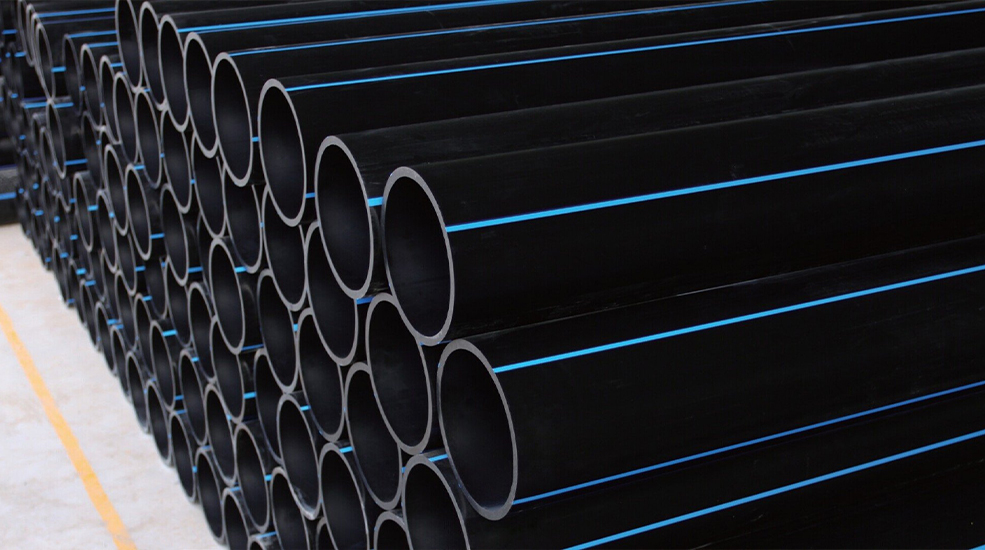
I Structure
High-density polyethylene is a polymer. Polymer molecules consist of repetitive chains called monomers. The monomer that makes up high-density polyethylene is ethylene, with the chemical formula (C2H4)n. Catalysts are then added to produce new ethylene monomers at the ends of the polymer chains. Due to the simple polymer structure and minimal branching, it forms densely packed chains, giving the material strength, flexibility, and stability.
Due to its strength and durability, HDPE is the most widely used type of plastic, accounting for 34% of all plastics. HDPE also has good bending radius and excellent impact and compression resistance at very low temperatures. Acidic and alkaline environments, as well as many solutions and chemicals, do not affect polyethylene. This is one of the most important advantages of polyethylene pipes and fittings.
- Density: 0.944-0.965 g/m³
- Tensile Strength: >3500 psi
- Coefficient of Thermal Expansion: 8 x 10 -6
- Maximum Continuous Use Temperature: 140°F
- Slow Crack Growth Resistance (PENT Time): >10,000 hours
II Introduction to Various Types of HDPE Pipes
HDPE Double Wall Corrugated Pipe
HDPE Double Wall Corrugated Pipe is a new type of lightweight pipe made from high-density polyethylene. It is known for its light weight, high pressure resistance, good toughness, quick installation, and long service life. Its excellent wall structure design significantly reduces costs compared to other structural pipes. Due to its convenient and reliable connections, it has been widely used domestically and internationally, replacing a large number of concrete and cast iron pipes. The corrugated pipe has no internal load pressure and has a circular outer surface, providing high strength to withstand all surface and underground pressures, including live and dead loads.

HDPE Steel Wire Frame Reinforced Pipe
HDPE Steel Wire Frame Reinforced Pipe is a new type of composite structural wall pipe that combines the advantages of high-density polyethylene (HDPE) and steel wire reinforcement. The pipe has a high-strength steel wire wrapped as the core layer and high-density polyethylene plastic as the inner and outer layers, forming a complete pipe wall. It aims to provide enhanced structural strength and durability for various applications, offering a durable, corrosion-resistant, and structurally robust solution for various pipeline applications. Its flexibility, lightweight, and resistance to external loads make it the preferred choice for infrastructure projects and industries that require reliable and long-lasting pipeline systems.
HDPE Water Pipe
HDPE (High-Density Polyethylene) water pipes are commonly used in water supply systems due to their excellent performance and reliability. HDPE is a widely used and durable material that offers many advantages for water pipe applications. HDPE water pipes provide numerous advantages for water supply systems. Their corrosion resistance, leak-free joints, flexibility, high flow capacity, impact resistance, long service life, and environmental friendliness make them a reliable and cost-effective choice for various water supply applications.
HDPE Silicon Core Pipe
HDPE Silicon Core Pipe, also known as HDPE Telecom Duct or HDPE Microduct, is a high-density polyethylene (HDPE) pipe specifically designed for the installation of fiber optic cables in telecommunication networks. It provides protective ducts for fiber optic cables and brings various advantages to telecommunication infrastructure. HDPE Silicon Core Pipe serves as a protective conduit for fiber optic cables in telecommunication networks. Its structure, cable protection capabilities, low friction coefficient, flexibility, corrosion resistance, and cost-effectiveness make it the preferred choice for efficient and reliable fiber optic cable installations.
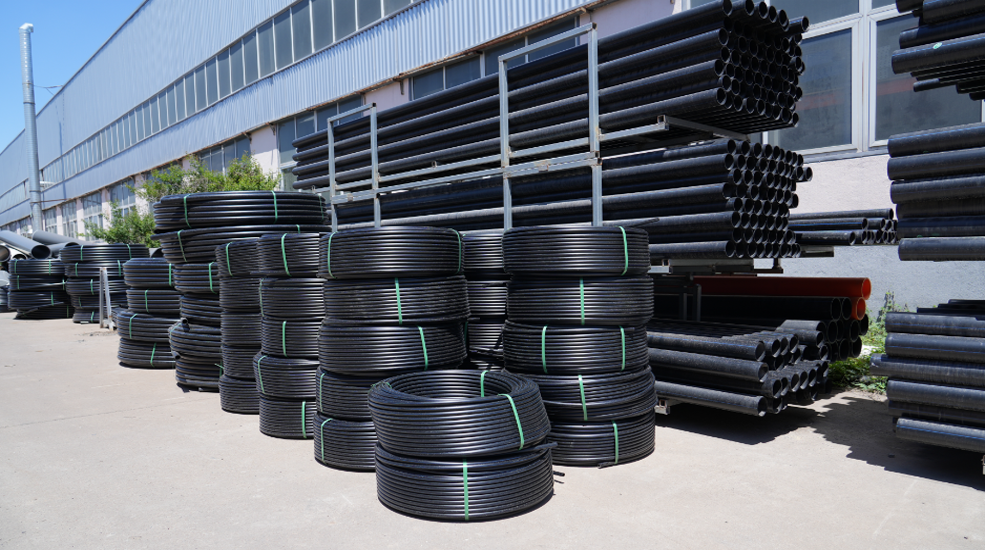
III Advantages of JS HDPE Pipe
- Durable and Reliable
JS HDPE pipes are robust and durable, capable of withstanding high-pressure intensity and external loads. These sturdy and flexible HDPE pipes can endure extreme temperatures, seismic conditions, vibrations, water hammer pressure impacts, deep burial or continuous exposure to the ground. - Lightweight and Cost-effective
JS HDPE pipes are lighter in weight compared to other pipe materials, resulting in significant cost savings in transportation, handling, and installation. The flexibility of JS HDPE pipes allows on-site bending to accommodate curves, contours, and terrains, reducing the need for directional fittings and lowering installation costs. JS HDPE pipes maintain installation and operational flexibility even under sub-zero conditions. - Corrosion and Chemical Resistance
JS HDPE pipes exhibit excellent corrosion resistance and chemical properties. They do not rust, decay, or corrode, nor do they support bacterial growth or scale buildup. Poor pipe materials susceptible to corrosion and environmental conditions are major factors leading to premature failure, increased maintenance and repairs, and performance degradation. - Cost Savings
Compared to materials such as concrete, steel, and ductile iron, JS HDPE pipes offer significant cost savings. With toughness, reliability, and durability, JS HDPE pipes extend the service life, avoiding the high costs of frequent replacement and repairs. Over time, HDPE pipe systems with heat fusion joints can safely and long-term convey water or other fluids without the inherent leaks of traditional pipe joints, significantly reducing operational costs.
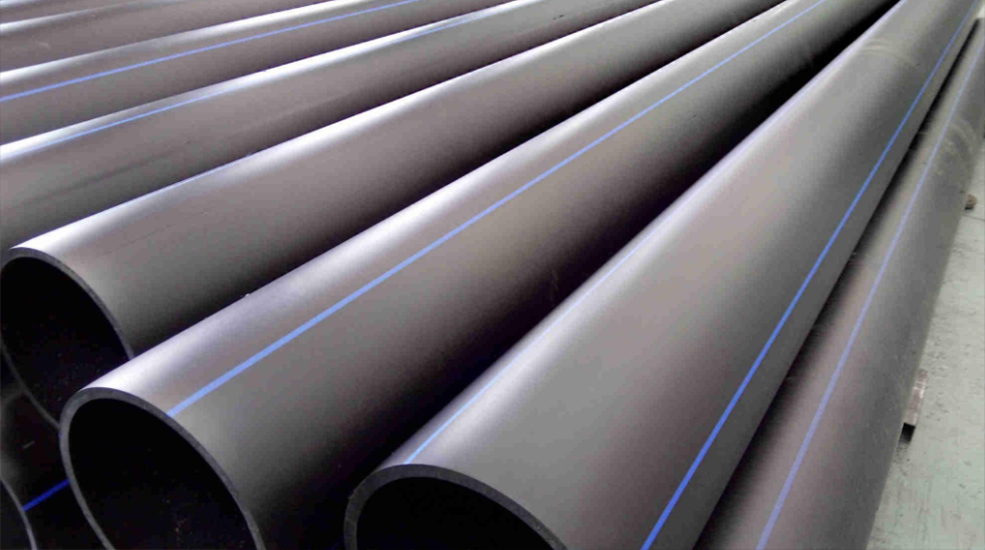
IV Applications of JS HDPE Pipes
- Urban and rural water supply systems
- Urban and rural wastewater treatment systems
- Natural gas supply networks
- Drainage systems
- Industrial liquid and wastewater treatment systems
- Pressure irrigation systems (drip tapes/pipes)
- Mobile irrigation systems
- Telecommunication cables and fiber optics (Silicon Core Pipe)
- Power cable casing (Silicon Core Pipe)
- Dredging projects (Dredge Pipe)
- Chemical fluid and industrial product transport networks (according to standards)
JS PIPE's HDPE pipes conform to industry standards, stringent safety regulations, and specific customer requirements. Our large-scale production enables us to manufacture pipes for customers at the lowest cost while maintaining the highest quality and efficiency standards. HDPE is the optimal choice for most pipeline applications. Contact JS PIPE now to learn about our HDPE pipe manufacturing capabilities and more pipeline information.
You are welcome to : phone call, Message, Wechat, Email& Seaching us, etc.






